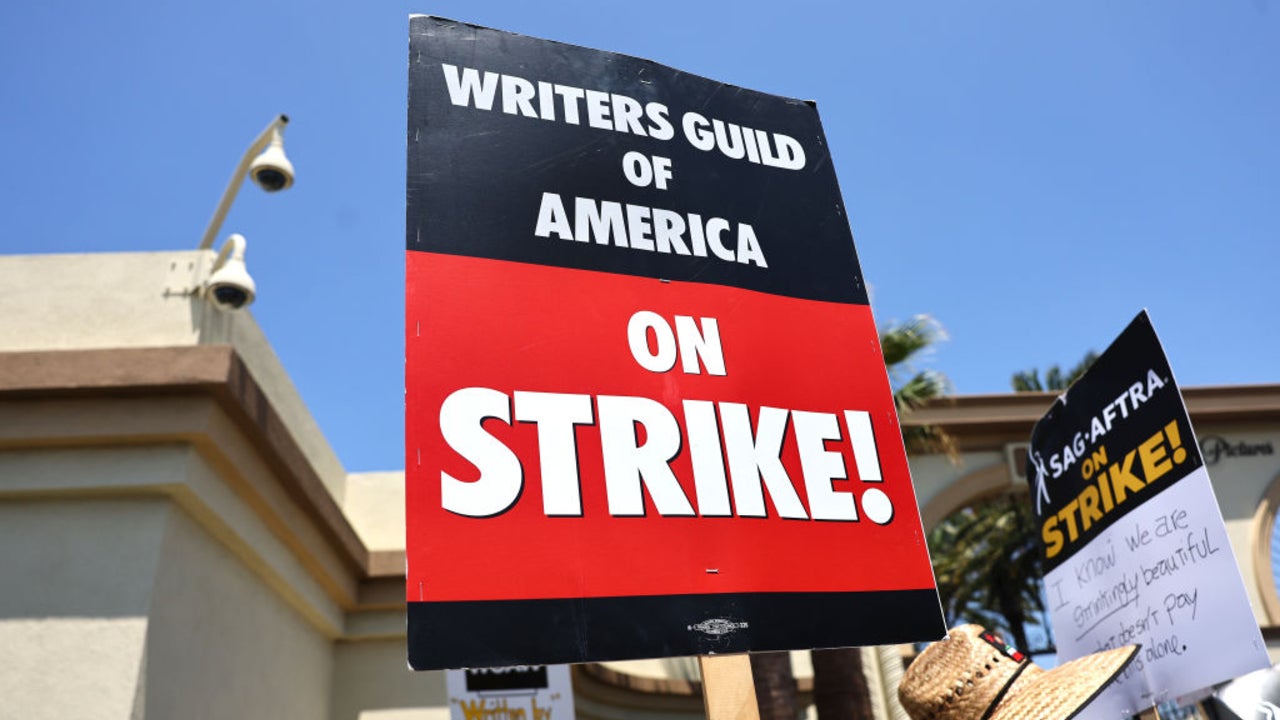
WGA Reaches Tentative Deal with AMPTP to End 2023 Writers Strike
Last Updated on September 25, 2023 by Admin
[ad_1]
After 146 days on the picket line, the Writers Guild of America (WGA) have struck a tentative deal with the Alliance of Motion Picture and Television Producers (AMPTP) to end the writers’ strike.
The two groups reached a tentative agreement on a new three-year deal Sunday night.
WGA West announced the news to Twitter, sharing, “The WGA and AMPTP have reached a tentative agreement. This was made possible by the enduring solidarity of WGA members and extraordinary support of our union siblings who stood with us for over 146 days. More details coming after contract language is finalized.”
There was reason for optimism following Wednesday’s meeting between the writers and Hollywood studios. Deadline reported that an insider described the CEO-attended session as “very encouraging.” The meeting was attended by Netflix’s Ted Sarandos, Disney’s Bob Iger, Universal’s Donna Langley and Warner Bros. Discovery’s David Zaslav, alongside AMPTP president Carol Lombardi and WGA chief negotiator Ellen Stutzman.
The writers’ strike, which brought Hollywood production to a screeching halt when the strike began on May 2, still technically continues, however WGA leadership has suspended picketing and protesting efforts.
According to an internal release from the WGA, obtained by Deadline, the tentative deal is “an agreement in principle on all deal points, subject to drafting final contract language.”
The agreement will now be presented to the WGA East and WGA West boards to vote on approving the deal — a process that is expected to take several days.
The WGA and AMPTP tried to negotiate a new deal for six weeks before the WGA’s contract with the studios ended on May 1. When they couldn’t reach a new three-year deal, approximately 11,500 writers walked out at 12:01 a.m. PT the next day. The sides failed to reach an agreement over fair compensation, particularly in the wake of the expansion of streaming services since the last major contract dispute in 2007. At that time, the union fought for greater funding for writers’ rooms and DVD residuals. This time around, there was also growing concern about the use of artificial intelligence in creative content.
“The companies have used the transition to streaming to cut writer pay and separate writing from production, worsening working conditions for series writers at all levels,” the WGA pointed out in a March 14 bulletin. “On TV staffs, more writers are working at minimum regardless of experience, often for fewer weeks, or in mini-rooms, while showrunners are left without a writing staff to complete the season. And while series budgets have soared over the past decade, median writer-producer pay has fallen.”
The WGA also contended that, for screenwriters, compensation had also stagnated over the past four years, and that “their pay is often stretched out over many months and can be held hostage by producers’ demands for free work.” For its part, the AMPTP said it presented the writers with an offer that met “the priority concerns the writers have expressed.”
The strike had a devastating ripple effect across Hollywood, bringing TV and movie sets to a grinding halt, delaying TV premieres and postponing the premiere of several daytime and late-night television shows. Netflix’s Stranger Things, Marvel’s Blade and Paramount’s Evil were just some of the many shows forced to stop production.
After late-night TV came to a halt, the hosts of Late Night With Stephen Colbert, The Tonight Show Starring Jimmy Fallon, Jimmy Kimmel Live, Late Night With Seth Meyers and Last Week Tonight With John Oliver banded together and started a podcast, with proceeds benefiting their writers who have not been working since May.
Even shows like Dancing With the Stars, which was set to premiere season 32 next week, had to implement a plan to postpone the premiere due to the strike. A source close to the production told ET that “there are over 500 people employed for the show and the talent are allowed to work on this show under the SAG Network Code agreement, but due to rising pressure that the talent is receiving, we are preparing to postpone.”
It’s still unclear the impact the writers’ strike had this time around. According to one report, the writers’ strike in 2007-2008 cost California’s economy a whopping $2.1 billion after work came to a halt for 100 days.
RELATED CONTENT:
[ad_2]
Source link




